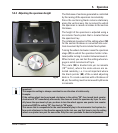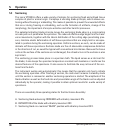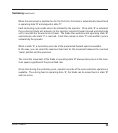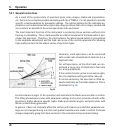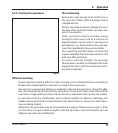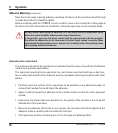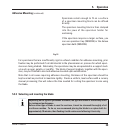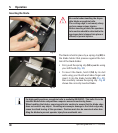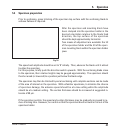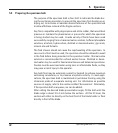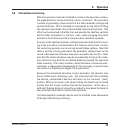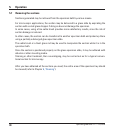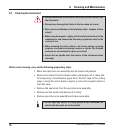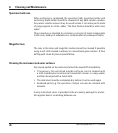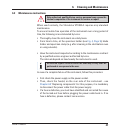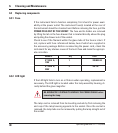
41
Leica VT1000 A
5. Operation
The speed and amplitude should be set to "0" initially. Then, advance the blade until it almost
touches the specimen.
For this purpose, briefly push the direction switch upwards. With the sectioning blade close
to the specimen, their relative heights may be gauged approximately. The specimen should
then be raised (or lowered) to a position just below the blade edge.
The specimen may then be trimmed by serial sectioning until complete sections can be made
of the area of interest on the specimen. With unfamiliar specimens, to minimize the chance
of specimen damage, the advance speed should be at a low setting while the amplitude
should be at a medium setting. The section thickness should be increased at suggested in-
tervals of 50 µm.
If the specimen permits, the speed and section thickness may be gradually increased to re-
duce trimming time. However, be careful so that the specimen does not twist or fall out of the
specimen holder.
5.4 Specimen preparation
Prior to sectioning, gross trimming of the specimen top surface with the sectioning blade to
achieve flatness is required.
After the specimen and mounting block have
been clamped into the specimen holder in the
desired orientation relative to the blade feed
direction, the top surface of the specimen
should be kept approximately horizontal.
Two means of adjustment are available: the tilt
of the specimen holder and the tilt of the speci-
men mounting block within the specimen holder
jaws.
Fig. 54



